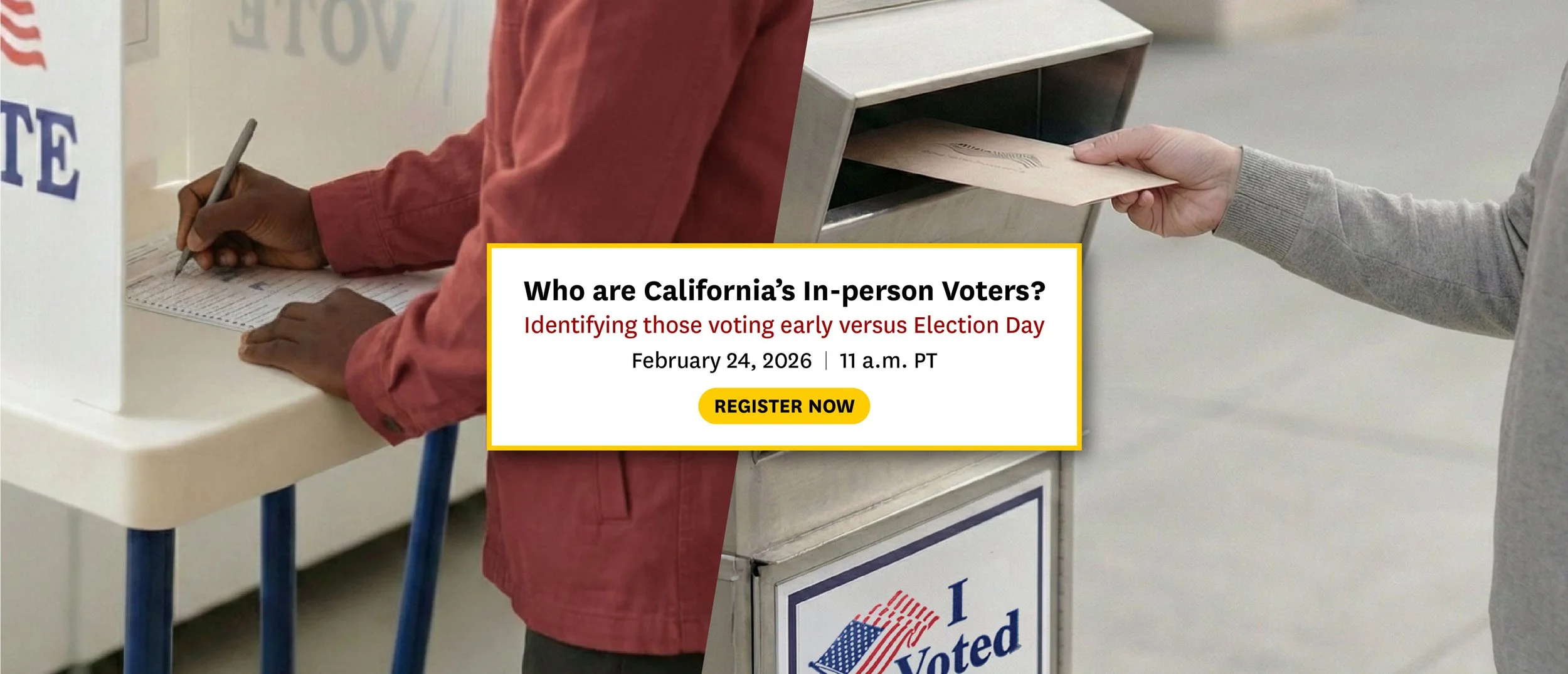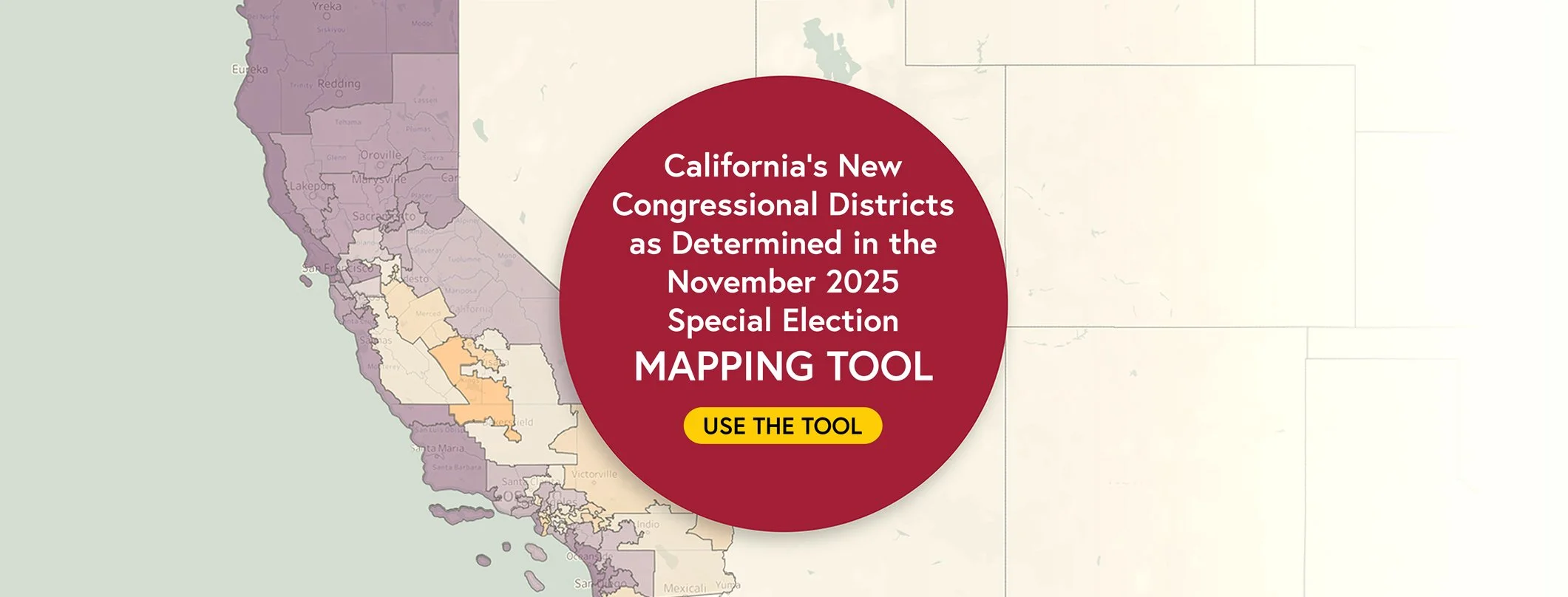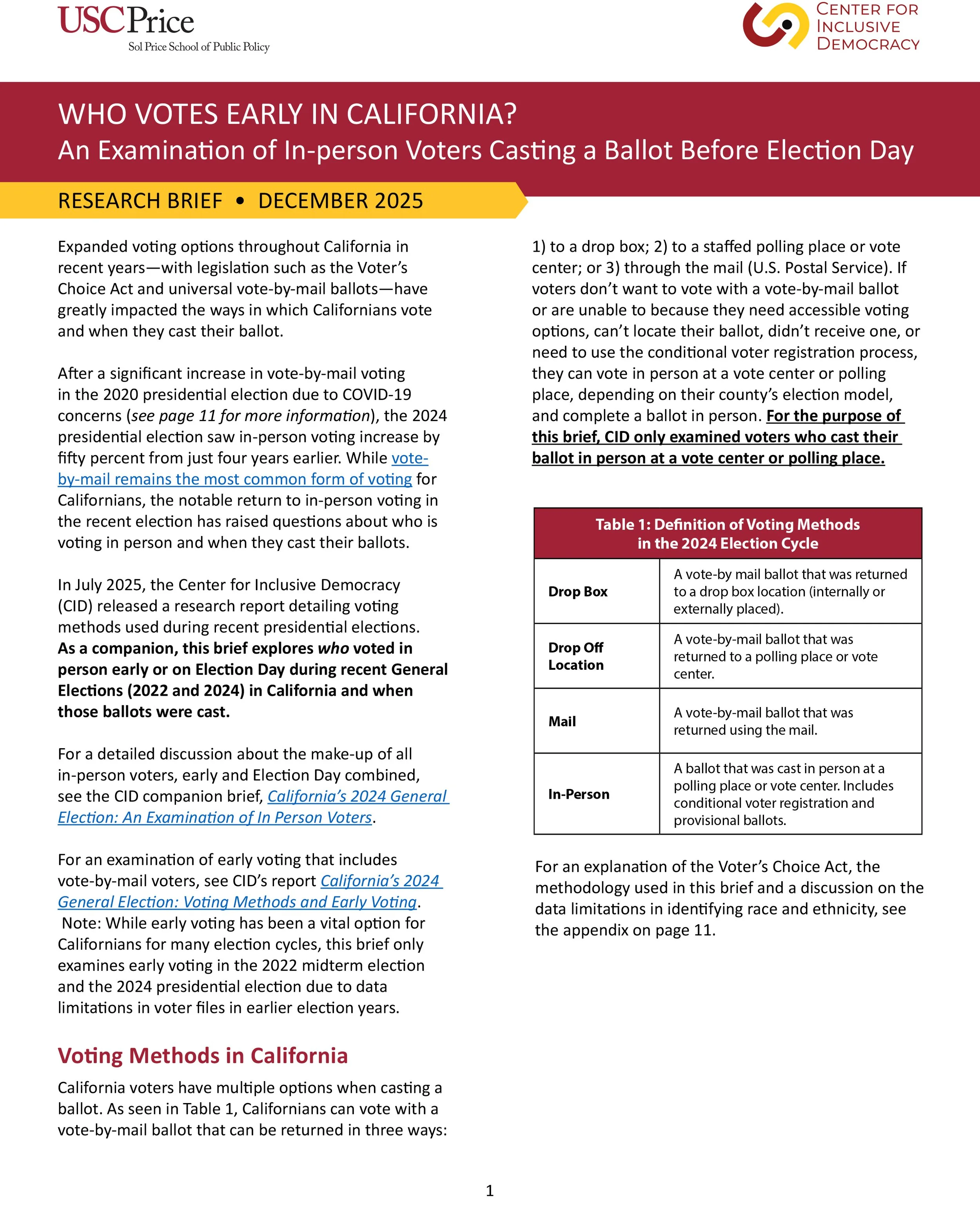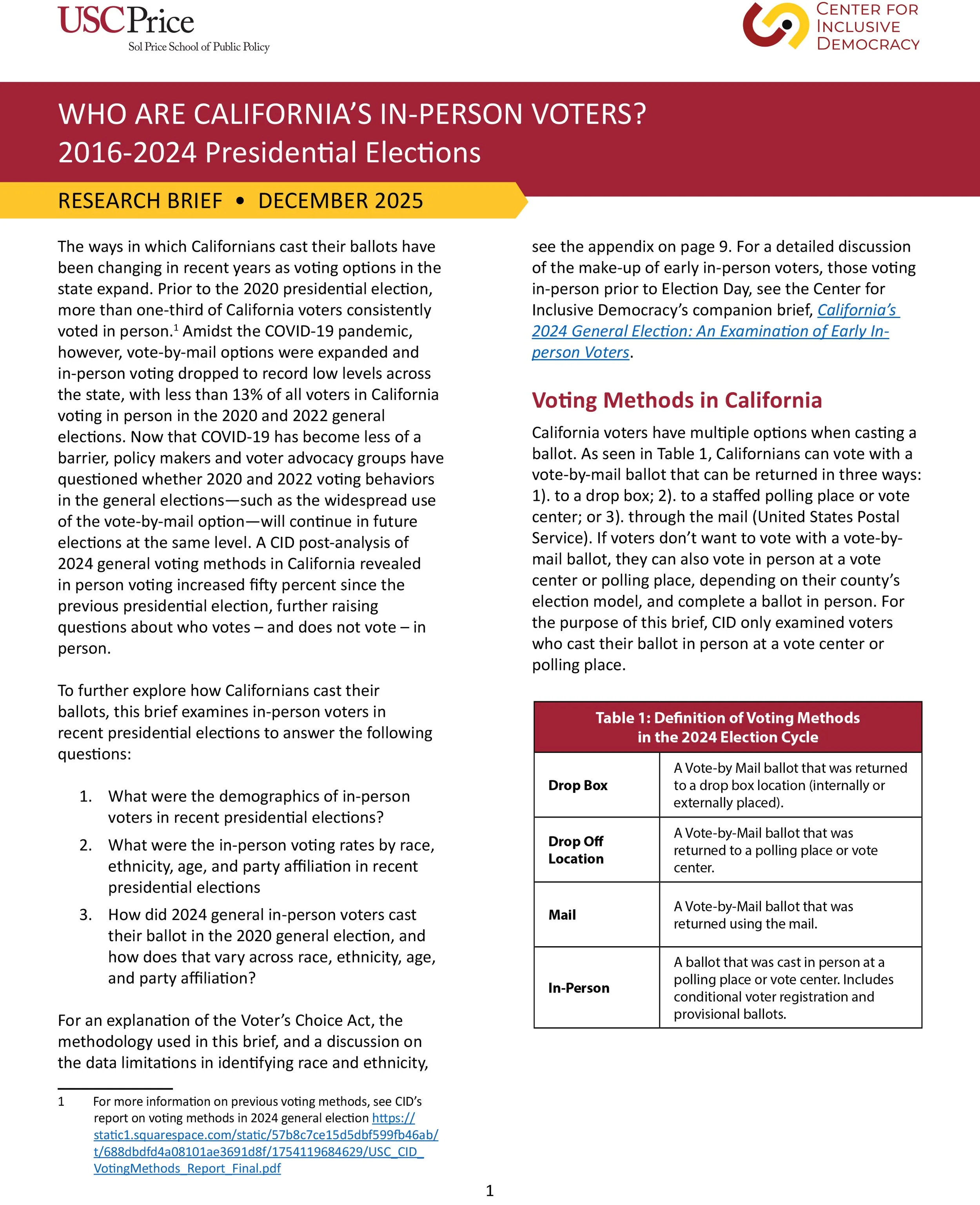Welcome to the Center for Inclusive Democracy!
The Center for Inclusive Democracy (CID) at the USC Sol Price School of Public Policy is a leading nonpartisan research center focused on elections, voting behaviors, and electoral and political participation.
Founded by political sociologist Dr. Mindy Romero, CID’s studies have been widely used to inform public policy at all levels of government, as well as empower local communities seeking to address disparities in the social and economic well-being of the electorate.
For the latest information, explore CID’s, sign up for our monthly newsletter.
Read about CID’s history and milestones.
NEW RELEASE!
WHO VOTES EARLY IN CALIFORNIA?
An Examination of In-person Voters Casting a Ballot Before Election Day
Expanded voting options throughout California in recent years—with legislation such as the Voter’s Choice Act and universal vote-by-mail ballots—have greatly impacted the ways in which Californians vote and when they cast their ballot. This brief explores who voted in person early or on Election Day during recent General Elections (2022 and 2024) in California and when those ballots were cast
WHO ARE CALIFORNIA’S IN-PERSON VOTERS?
2016-2024 Presidential Elections
New Release!
The ways in which Californians cast their ballots have been changing in recent years as voting options in the state expand. A CID post-analysis of 2024 general voting methods in California revealed in-person voting increased fifty percent since the previous presidential election, further raising questions about who votes – and does not vote – in person. To further explore how Californians cast their ballots, this brief examines in-person voters in recent presidential elections.
California’s New Congressional Districts as Determined in the November 2025 Special Election Mapping Tool
This mapping tool presents population and voter data for the newly redrawn California Congressional Districts. These congressional districts replace the districts generated by the current California Citizens Redistricting Commission due to the passage of Proposition 50.
CLICK HERE TO USE THE TOOL
Click here for a video highlighting CID's impact.











